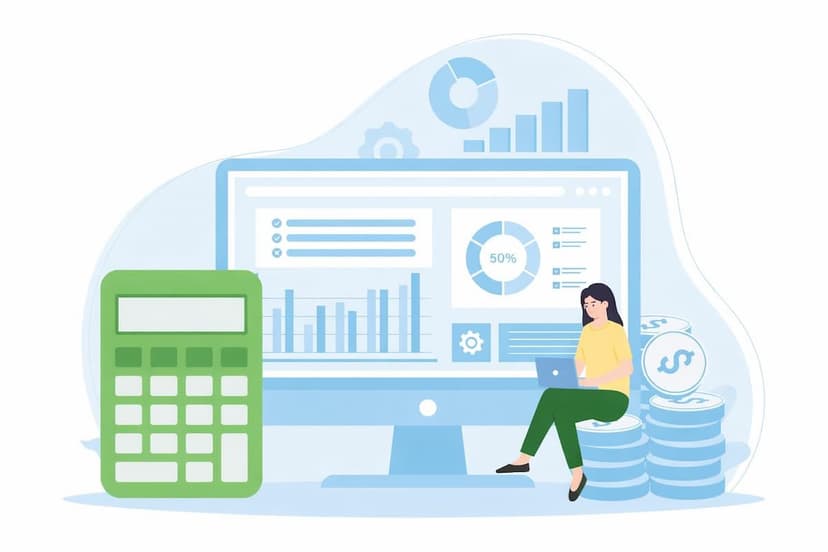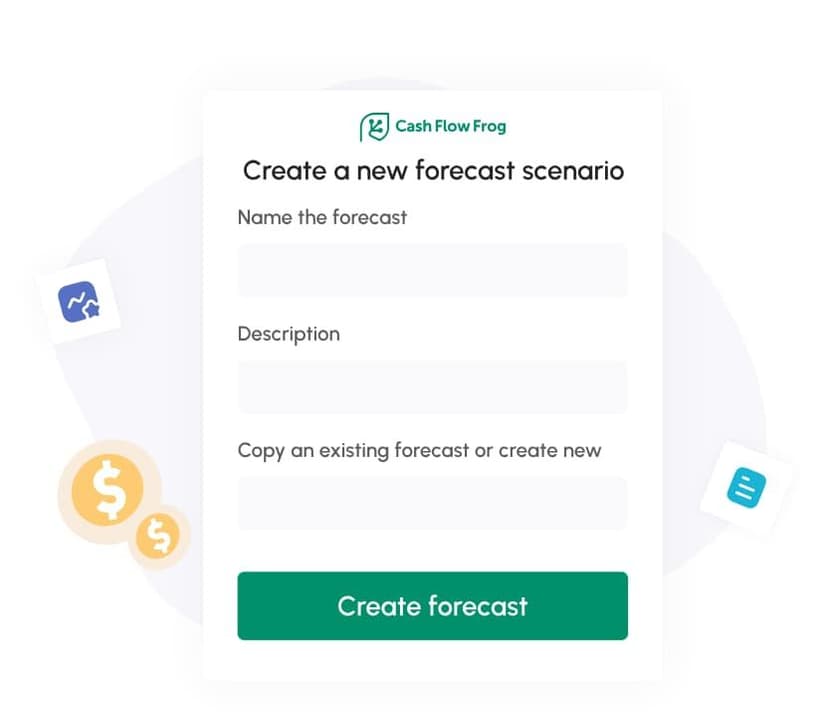What Is MCA in Business and Is It Right for You?

What is MCA in business? Small business owners, you're not the only one who has this question. In a merchant cash advance (MCA) financing arrangement, a lender gives your company a one-time payment in return for a share of your future sales. This article explains the MCA's meaning in business, how it works, if there are drawbacks to it, and whether this option is right for your needs.
What Is an MCA?
What is a merchant cash advance exactly? An MCA is an alternative financing product designed for businesses that need quick access to capital, which differs from the traditional loan plans most people are used to.
In an MCA, a provider gives your business an upfront sum of money, and you repay it by allowing the provider to take a percentage of your daily credit/debit card sales plus a fee. The merchant cash advance's meaning, therefore, boils down to getting cash now in return for a share of revenues you'll earn later.
But what does MCA stand for in business terms? It’s not fairly different. Usually, MCA in business refers to a financing solution where the company purchases a portion of your future revenue rather than lending you money in the usual sense.
What you need to note is that MCAs often do not require collateral or personal assets as security. Approval is based mostly on your business's sales performance rather than on hard assets, making MCAs accessible to businesses that might not qualify for bank loans.
How Is an MCA Different From Traditional Loans?
So, what is MCA, and how does it differ from other loans?
Structure
A traditional business loan is debt you repay with interest in fixed installments, while an MCA is technically a sale of future receivables.
Repayment Schedule
Loans have fixed payments and set terms, but MCA repayments happen automatically as a cut of daily sales, so the timeline isn't fixed.
Cost and Fees
Business loans charge interest, which is often a single or low double-digit APR. On the other hand, MCA providers charge a flat "factor rate" fee instead of traditional interest, often translating to much higher effective costs.
Qualification
Bank loans require good credit and financials, while MCAs have lenient approval criteria, focusing on revenues.
Regulation
Traditional loans have clear rules, and lenders must show all costs. However, MCAs don't have the same rules as these loans, making contracts harder to understand.
How Does a Merchant Cash Advance Work?
A merchant cash advance works by giving you cash upfront now and taking part of your future sales until the debt is paid. The process involves:
- Application and Approval: Apply with bank statements or credit card processing statements showing sales volumes.
- Offer of Terms: Receive a specific advance amount with a factor rate and holdback percentage.
- Funding: Provider deposits the lump sum into your business account within 1-2 days.
- Repayment: Provider automatically takes the agreed percentage from daily card sales or via ACH withdrawals.
- Completion: Once the full amount is collected, the MCA obligation is fulfilled.
To paint a clearer picture: a $20,000 advance with a 1.3 factor rate costs $26,000 total. With 10% holdback on $1,000 daily sales, you'd pay $100 per day.
Understand your real costs before you borrow
Start your free trialIs MCA the Same as a Business Loan?
No, an MCA is not the same as a business loan. What is MCA in finance terms? It's considered a sale of future assets, not borrowing, and major differences include.
- An MCA is structured as a purchase of future sales, not a loan with interest
- There are no fixed payments or a set end date with MCA
- MCAs typically don't build business credit or report to credit bureaus
- MCAs are generally easier to obtain than loans
This shows that the merchant cash advance's meaning differs fundamentally from traditional lending.
Which Businesses Use MCAs?
MCAs are used by various small and mid-sized businesses, especially those relying on credit card sales and experiencing cash flow challenges. These include:
- Newer businesses that lack credit history
- Businesses with high card transaction volume
- Seasonal businesses whose revenue is not consistent
- Companies that need quick capital for emergencies or opportunities
Here are some of the most common MCA users:
Small Retailers and E-commerce
Many retail stores and online shops use merchant cash advances due to their frequent small credit card transactions. They might use MCAs to:
- Purchase additional inventory
- Launch marketing campaigns
- Expand product lines
- Fund holiday season stock purchases
Restaurants and Seasonal Businesses
Restaurants, bars, and seasonal businesses use MCAs a lot because:
- Such businesses have smaller margins and sometimes need quick cash for equipment repairs or renovations
- They have many credit card transactions daily
- Seasonal businesses pay more during busy times and less during slow times
- No fixed monthly payments that strain cash flow when sales drop
All these businesses prioritize speed and accessibility over (lower) traditional financing costs.
Advantages of Merchant Cash Advances
Even though they cost a lot, what is a merchant cash advance give that regular loans don't? MCAs have several benefits that explain why businesses short on money like them:
- You get approved and funded within 24-48 hours, while regular loans take weeks or months
- They approve businesses easily, even with credit scores as low as 500 and simple rules
- Most MCAs don't need you to put up collateral, keeping your business and personal items safe
- Payments adjust with sales, letting you pay less during slow times and more during busy times
- MCAs won't hurt your credit score since the companies don't report to credit agencies in most cases
These benefits make MCAs very appealing for businesses that need money fast or can't get regular loans.
Risks and Disadvantages of MCAs
MCAs come with major downsides that business owners must carefully consider:
They Are Expensive
Effective APRs are often 50-300% or higher. For example, a $50,000 advance with a 1.4 factor rate costs $70,000 to repay, which is $20,000 in fees. If repaid over 8 months, this equates to roughly 150% APR.
Cash Flow Pressure
Having daily deductions causes strain on operating funds because it reduces the cash available for things like rent, payroll, and other expenses.
No Early Repayment Benefit
You owe the full factor amount regardless of payment speed - paying off a $70,000 obligation in 4 months instead of 8 still costs $70,000.
Complex Contracts
Terms can be confusing with hidden fees like origination charges (sometimes 2-5% of the advance) or administrative fees.
Limited Regulation
Fewer protections than traditional loans, with some providers using aggressive collection tactics or requiring dangerous legal clauses.
Debt Cycle Risk
Easy access can lead to repeated borrowing, with businesses "stacking" multiple MCAs and permanently pledging large portions of revenue.
MCA vs. Business Credit Cards vs. Bank Loans
Comparing financing options:
| Factor | MCA | Business Credit Cards | Bank Loans |
|---|---|---|---|
| Speed | Fastest (24-48 hours) | Moderate (days-weeks) | Slowest (weeks-months) |
| Cost | Most expensive (50-300%+ APR) | Moderate (14-25% APR) | Cheapest (6-10% APR) |
| Qualification | Easiest | Moderate | Most stringent |
| Amounts | Typically smaller | Typically smaller | Largest potential amounts |
When Does an MCA Make Sense?
What does MCA mean for your business strategy? Understanding the MCA meaning in a business context is important before proceeding, and only consider an MCA when:
- You need money immediately, with no other quick options
- You can't qualify for traditional loans or credit
- Your revenue is driven by stable card sales
- The funds will generate quick ROI
- The amount needed is small and short-term
- It's truly a last resort when no other funding is available
In short, MCAs are only ideal when the benefits clearly outweigh the substantial costs.
Before choosing an MCA, see how smart forecasting can help you plan better
Try Cash Flow Frog freeWarning Signs to Avoid in MCA Providers
Avoid providers who show these signs:
- Lack of clarity on terms and total costs
- Unusually high rates or unclear fee structures
- Promise "guaranteed approval" or employ high-pressure tactics
- Requirements for confession of judgment clauses
- Poor reputation or no track record
- Pushing you to borrow more than needed
Research your potential providers thoroughly and remember to trust your instincts.
Questions to Ask Before Signing an MCA Agreement
When you ask the right questions, you protect yourself from costly surprises. It also ensures you understand exactly what you're agreeing to:
- What is the total payback amount and effective APR?
- What percentage of sales will be taken daily?
- Are there additional fees beyond the factor rate?
- What happens if sales drop significantly?
- Is there a personal guarantee or legal judgment clause?
- How are payments collected daily?
- Can I take additional funding later?
A reputable provider will answer these questions clearly and patiently.
How to Apply for a Merchant Cash Advance
The application process is straightforward compared to traditional loans, designed for speed rather than extensive documentation:
- Evaluate needs and confirm MCA is your best option
- Research providers and compare offers
- Gather documentation (bank statements, processing statements) 4 Submit the application online with basic business information
- Review offers carefully, comparing terms and total costs
- Sign the agreement after a thorough review
- Receive funding typically within 24 hours
- Begin repayment the next business day
The process is fast, but take time to read contracts carefully and compare multiple offers.
What Other Financing Options Do You Have?
Before committing to the high costs associated with the MCA meaning, consider these cheaper alternatives first:
Business Line of Credit
Draw funds as needed up to a credit limit, paying interest only on amounts used. Rates often range from 10-25% APR, which is significantly lower than MCAs. You can access funds repeatedly as you repay, ideal for ongoing cash flow needs.
Equipment Financing
If buying specific equipment, these loans use the equipment as collateral with rates from 8-20% APR. Payments are fixed and predictable, with terms matching the equipment's useful life. Most require only 10-20% down.
Invoice Factoring
Factoring companies buy your outstanding invoices at a discount (typically 80-90% upfront), providing immediate cash. Fees range from 1-5% monthly. This addresses cash flow from slow-paying clients without creating new debt.
Exploring MCA? Make sure your cash flow stays healthy
Forecast with confidence
How to Calculate Free Cash Flow (FCF): Formulas + Real Examples
Read more

The 3 Types of Cash Flow: What They Mean and Why They Matter
Read more

Cash Flow Forecasting Template
Read more

Your Guide To Financial Metrics And KPIs
Read more

10 Cash Management Trends for 2026
Read more

10 Best Cash Flow Business Ideas: Build Income That Counts
Read more
FAQ
Trusted by thousands of business owners
Start Free Trial Now